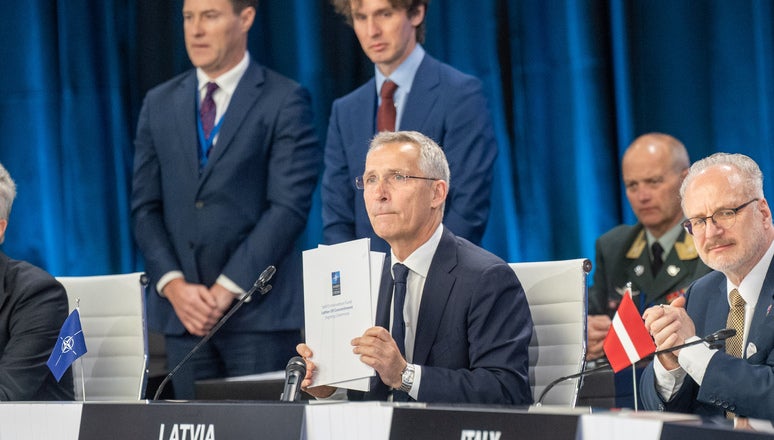The North Atlantic Treaty Organization (NATO) announced 1 August that twenty-three NATO Allies have taken the official step of becoming Limited Partners of the NATO Innovation Fund (NIF).
This sets the stage for the NIF to commence its inaugural investments in the coming months, using its €1bn ($1.1bn) multi-sovereign venture capital fund, the first of its kind, to back Deep Tech projects in a variety of disruptive areas of the defence and security markets.
NATO states that NIF grants and funding will be centred on pursuing the Emerging and Disruptive Technologies (EDTs) outlined in its 2022 Strategic Concept.
Participating allies have expressed their warm reception towards Sweden's expressed interest in becoming a member of the NIF, following the nation’s recent entry into NATO.
“As a member of NATO, Sweden will contribute to the strength of the Alliance, not only through our geo-strategic location and military capabilities, but also through a vibrant security and defence industry that promotes innovation and development of cutting-edge technology,” said Pål Jonson, Minister of Defence, Sweden. “This is further enabled through participation in the NATO Innovation Fund.”
Deep Tech challenges and NATO solutions
The fund intends to directly invest in start-ups situated within the 23 participating Allied nations, as well as to invest in Deep Tech funds that have a significant impact across the trans-Atlantic region, over a 15-year period
Deep Tech initiatives are characterised by high cost research and design (R&D) processes to meet a specific problem. As an investment vehicle, Deep Tech is distinct from conventional tech companies that typically have low R&D requirements but higher marketing and business analytics costs as the company seeks to scale, and understand its fit with the market. In contrast to this, Deep Tech looks to tackle well defined challenges that have a recognised customer base, but need to invest tremendously in technology that may or may-not work in order to even achieve a minimum viable product.
Because of the high up-front costs and uncertainty, finding backers can be tricky from the outset, but these investments are essential for the private sector to foster disruptive technological solutions. NIF has a laundry-list of ambitious objectives it is seeking to achieve through backing Deep Tech innovators, including hypersonics, quantum technology, artificial intelligence and autonomy, and next-generation communications.
The fund also has interest in supporting advances in biotechnology, energy and propulsion and operations in space. Understanding the complex demands of this work, the fund offers “patient capital to meet the needs and timelines of Deep Tech innovators and to secure an enduring future for the Alliance’s 1 billion citizens,” according to a release from NATO.
NIF's sister, DIANA
While NIF is a the world’s first multi-sovereign venture capital fund, it does have the opportunity to draw on the experience of its ‘sister initiative’, the Defence Innovation Accelerator for the North Atlantic (DIANA), and participants in DIANA’s programmes will be awarded grants and gain exposure to the NIF, according to the NIF website, which goes on to suggest that there may also be opportunities for DIANA start-ups to benefit from NIF funding.
DIANA is a NATO working body launched in 2021 to foster transatlantic cooperation on critical technologies and engage with the private sector as well as civilian bodies including academia. Its approach to selecting innovators has been though competitive industry challenges based on critical defence and security problems using deep-tech dual-use technologies.
As of June 2023, there are 91 DIANA test centres appearing in 21 countries across Europe, and 11 accelerators across Europe and the US. The initiative launched its first three challenges in 2023, on energy resilience, secure information sharing, and sensing and surveillance.
DIANA’s energy resilience challenge is to find a modular design for microgrids that are reliably able to meet supply demands. The fund’s challenge for secure information sharing is to create a secure information environment for live data streams, with low-latency video, augmented reality feeds, and digital radio.
Regarding the DIANA challenge for sensing and surveillance, the initiative is interested in systems for subsurface coastal zones, that could extend to "seafloor mapping, undersea infrastructure monitoring, manmade object and marine-life tracking, climate-change-effects sensing, and patterns-of-life visualisations."









